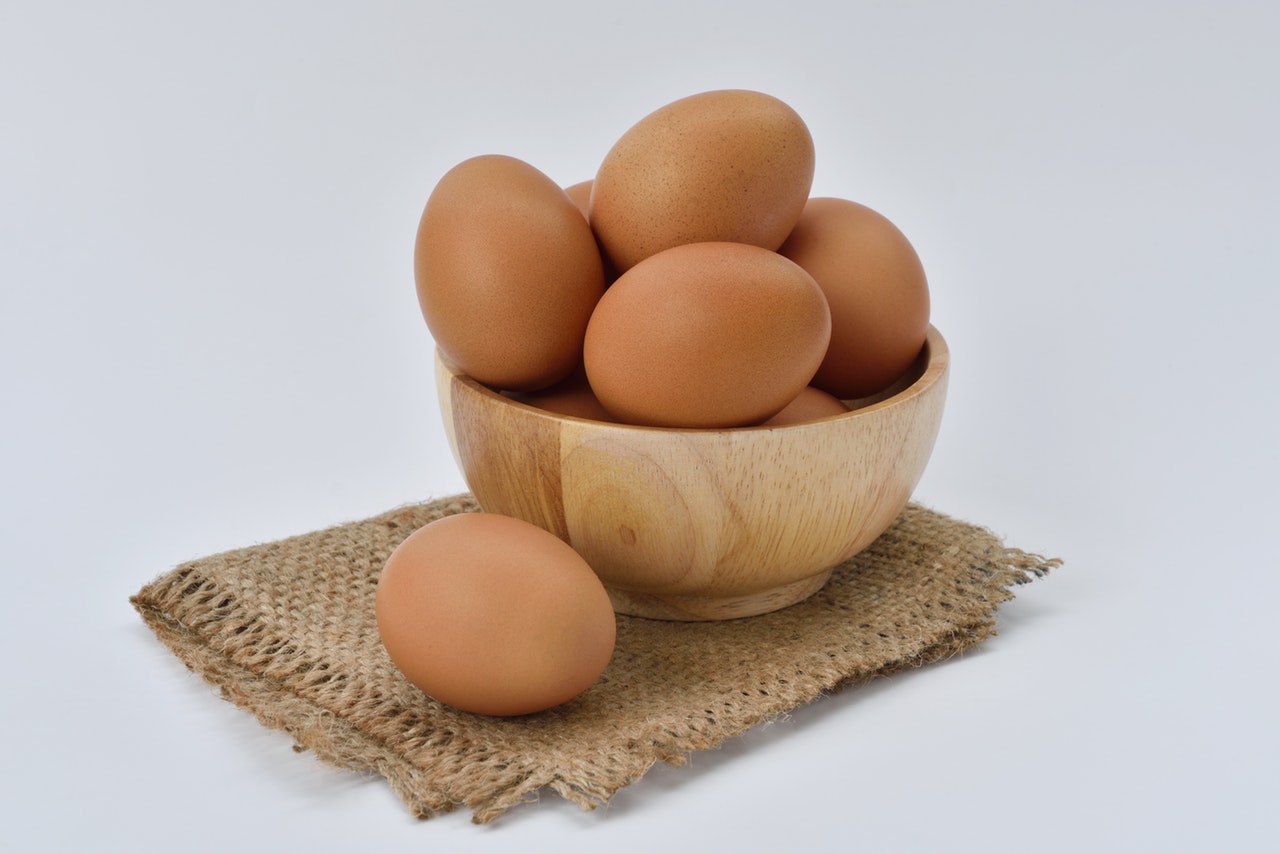Choline: The Nutrient You Have Probably Never Heard of

Being aware of your specific genes can help you make more informed decisions about the foods and exercises that are right (or wrong!) for your body—all of which can help prevent health problems later down the road.*
Written by: Jamie January 17, 2020
What is choline
Choline is an essential nutrient for your body to function properly. It is not considered a vitamin or a mineral. Interestingly, it exists as both a water-soluble and a fat-soluble molecule. Your body can make the water-soluble version and uses it in the liver. You generally need to get the fat-soluble version from your diet so your body can use it in the gastrointestinal tract.
What does choline do?
- Promotes better cognitive abilities like memory
- Brain development and growth in newborn babies
- Helps metabolize fats
- Promotes a healthy liver
- It can turn your genes on and off: gene expression
How do I get choline?
The following foods are good sources of choline:
- Chicken and beef especially the liver
- Fish and shellfish
- Eggs
- Cruciferous vegetables like broccoli and cauliflower
- Beans
Who is at risk for low choline?
- Excess alcohol consumption: Alcohol increases the amount of choline your body needs, therefore increasing your risk for deficiency.[1]
- Postmenopausal women: Estrogen helps produce choline in the body. After menopause, a woman produces less estrogen. In other words, postmenopausal women might not produce enough choline[2]
- People with certain gene mutations.
- Vegans and vegetarians: The highest levels of choline are in animal products
What can happen with chronic low choline?
- NAFLD: Nonalcoholic fatty liver disease [3]
- Cardiovascular disease
- Neural tube irregularities in newborns
How do genes play a role?
Certain variants of the PEMT, MTRR, MTHFD1, and FADS1 genes can increase your risk of choline deficiency.
- The T variant of the RS7946 genotype affects choline production in the liver. As a result, your body might not make enough.[4]
- The G variant of the RS1801394 is involved in choline metabolism. Therefore, tour body has a hard time absorbing and using choline which can lead to deficiencies.[5]
- Similarly, the T variant of the RS2236225 is involved in choline metabolism and can increase your dietary needs.[6]
- The G variant of the RS174548 is known to increase your risk of low levels.[7]
What can you do about it?
- Above all, eat foods high in choline to get your recommended daily amounts.
- However, be very careful with supplements as too much choline can be dangerous.
- Secondly, review your genetic predispositions. If you have not done testing, get your genes tested with Secret Sequence!
- If you have certain risk factors like excessive alcohol use, are a vegan or vegetarian, or certain gene mutations, it is particularly important to mindful of your choline levels.
- Monitor your choline intake and talk to your doctor if you have any concerns—and remember to discuss if you have genes that can affect your levels!
- This is especially important if you are pregnant!
- Blood tests are not currently good indicators of your choline levels, but hopefully new tests will be developed soon!
What comes next?
New research on the topic is being done all the time. You have the ability to learn more about your DNA, so why wouldn’t you want to learn what changes can make you a healthier you?
One more important reminder: you need to be in control of who you share that information with. Secret Sequence will never sell your data—we never even ask for your name! Safely learn more about yourself and your health: order our Health report today to learn more about your body’s vitamin responses!
*Disclaimer: All information, content, and material of this website is for information purposes only and are not intended to serve as a substitute for the consultation, diagnosis, and/or medical treatment of a qualified physician or healthcare provider.
References:
[1] KLATSKIN, G., & KREHL, W. A. (1954). The effect of alcohol on the choline requirement. II. Incidence of renal necrosis in weanling rats following short term ingestion of alcohol. The Journal of experimental medicine, 100(6), 615–627. doi:10.1084/jem.100.6.615
[2] Leslie M Fischer, Kerry-Ann da Costa, Lester Kwock, Joseph Galanko, Steven H Zeisel, Dietary choline requirements of women: effects of estrogen and genetic variation, The American Journal of Clinical Nutrition, Volume 92, Issue 5, November 2010, Pages 1113–1119, https://doi.org/10.3945/ajcn.2010.30064
[3] Song, J., da Costa, K. A., Fischer, L. M., Kohlmeier, M., Kwock, L., Wang, S., & Zeisel, S. H. (2005). Polymorphism of the PEMT gene and susceptibility to nonalcoholic fatty liver disease (NAFLD). FASEB journal : official publication of the Federation of American Societies for Experimental Biology, 19(10), 1266–1271. doi:10.1096/fj.04-3580com
[4] https://www.snpedia.com/index.php/rs7946
[5] https://www.snpedia.com/index.php/Rs1801394
[6] https://www.snpedia.com/index.php/Rs2236225
[7] https://snpedia.com/index.php/Rs174548
